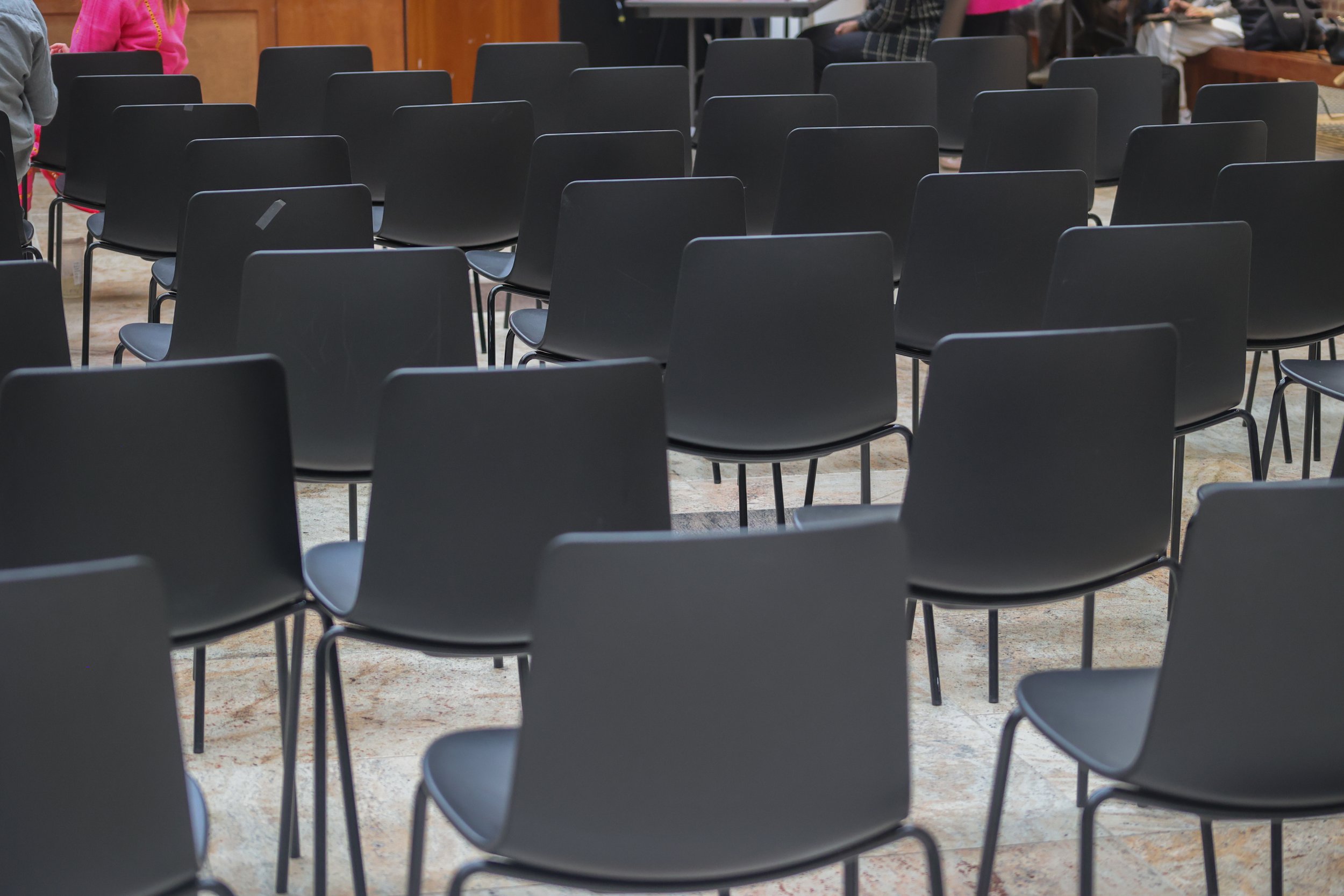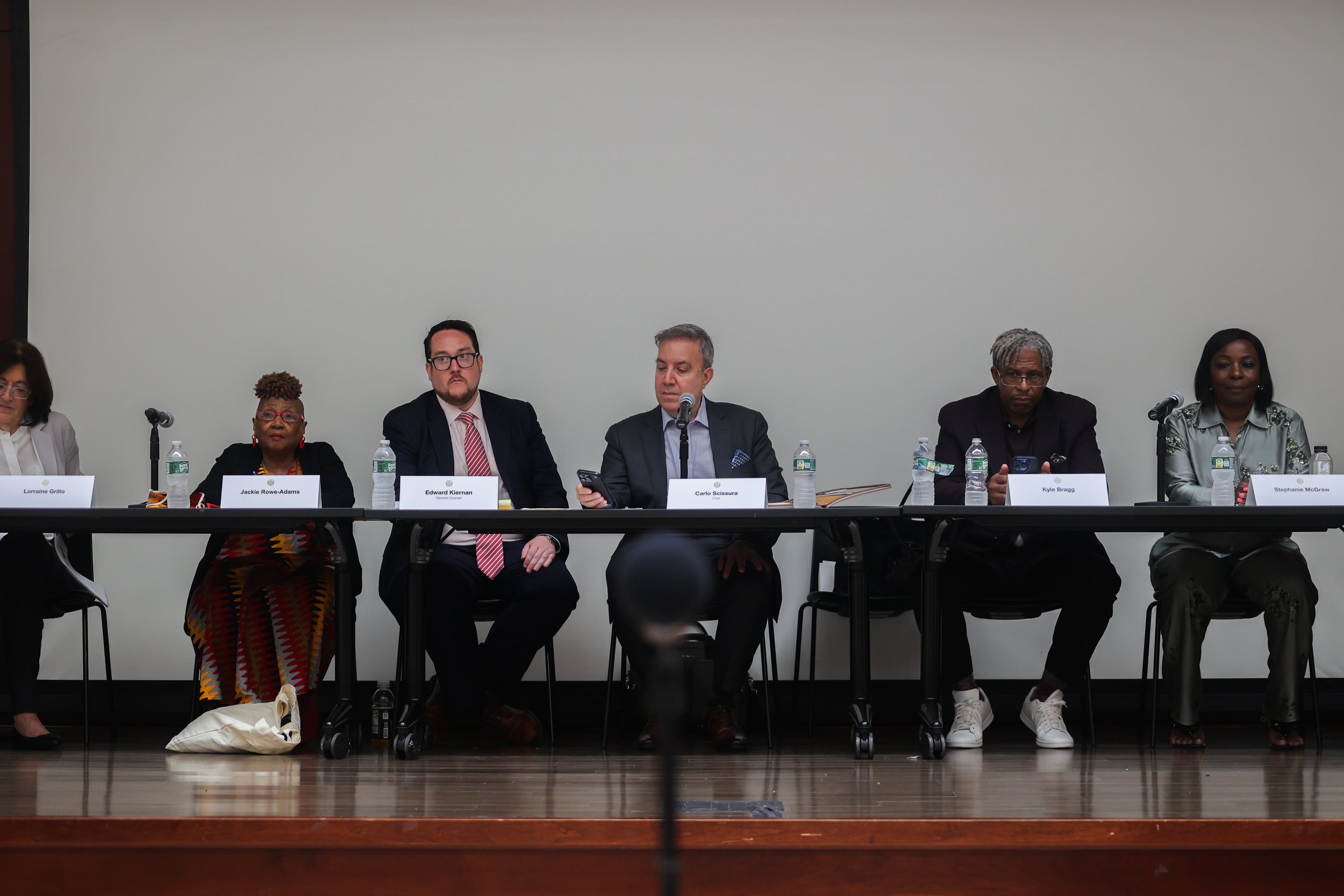City charter review begins in empty room in Queens
/The first meeting of the city’s Charter Revision Commission was poorly attended by members of the public at Queens Borough Hall on Wednesday. Eagle photo by Ryan Schwach
By Ryan Schwach
The reworking of New York City’s chief governing document began Wednesday in an empty room in Queens.
It was the second overall meeting of Mayor Eric Adams’ recently-convened Charter Revision Commission, but the first planned to take public input. But one thing was largely missing for the Wednesday meeting at Queens Borough Hall – the public.
The process of revisiting the city’s charter and potentially reshaping New York City’s government was announced by Adams in late May. The mayor, who is far from the first mayor to call for a Charter Revision Commission, claimed that he felt he needed to form the commission to help make city government more efficient. However, that claim has been called into question by the City Council, who have accused the mayor of attempting to use the commission to wrestle more power into the hands of the city’s executive branch.
Regardless of intention, the rollout of the Charter Revision Commission has been rocky and marred in controversy.
The latest criticism lobbed at the mayor’s commission was over the minimal outreach they did in an effort to get Queens residents to show up and make their voices heard at the Wednesday meeting.
Only seven members of the public showed up to testify and many used their time to ridicule city policy and pick on the commission’s outreach efforts.
Several of those who did give testimony later told the Eagle that they wished the city had done more to get the word out about the meeting so that they could have been better prepared to speak about their desires for the future of the city charter, a document some said they still don’t fully understand.
Members of the commission, which features a few Queens residents, said that they were there to hear out the community’s thoughts on the city’s charter.
“We will be soliciting recommendations and comments on how to improve city government from members of the public, like from this forum, from experts in certain areas of expertise that we will hear from hopefully in the next week and two weeks,” said Carlo Scissura, a longtime Adams who chairs the commission. “We encourage you to tell your friends and neighbors to come out and let us know how they think we can ensure that the city government is working.”
Scissura guaranteed that if time ran out, those wishing to give testimony would have the opportunity to do so at future meetings – the assurance was not necessary.
Around 45 individuals joined the meeting via Zoom, and in-person testifiers were vastly outnumbered by city employees and members of the press. It is also unclear how many of those on Zoom were members of the public and not press or city employees.
In all, only seven people spoke. One was a representative of the Queens borough president’s office, and another was education-activist Yiatin Chu, who is currently running for the State Senate in Queens but told the Eagle she was testifying independently from her electoral bid. Another was a Queens man named Sherif, who spoke about parking concerns, and another was Staten Island-based radio commentator Frank Morano. Danielle Brecker, a member of Queens Community Board 2, also spoke.
“It’s depressing,” said Brecker. “It’s bad that they didn’t give us much notice.”
Brecker, who testified about the city putting more guardrails on projects pursued by big developers, said she only heard about the meeting at 5 p.m. the night before, but hoped the turnout issues don’t continue into other meetings.
Two other local Queens members spoke at the meeting – St. Albans resident Lauretta Humphrey and Far Rockaway community board member Kimberly Comes.
Although there was a low turnout, the Charter Revision Commission heard testimony from a handful of Queens residents at its first public meeting from Queens on Wednesday. Eagle photo by Ryan Schwach
Both Humphrey and Comes urged the city to address the flooding issues in their Southeast Queens neighborhoods, but neither were able to speak about how exactly changing the city’s charter could help.
“It was late notice, I’m unprepared,” Humphrey told reporters. “If I was a little more prepared [I would have found out] about the charter in regards to sanitation, in regards to how the money is being spent and how it's being allocated and what power the borough president has in allocating the money and the way that he allocates.”
Chu, a Republican challenging State Senator Toby Ann Stavisky this year, spoke against the “advise-and-consent” bill currently being considered in the City Council, which would give the body power to approve or reject a number of the mayor’s government appointments. The bill, which was only recently introduced, has faced strong pushback from Adams and his administration. The bill reportedly was the motivation for creating the Charter Revision Commission in the first place.
Chu, who stepped up to speak again later in the meeting, also railed against the Adams’ City of Yes for Housing Opportunity plan, which would largely change the city’s current zoning regulations.
Morano, the Staten Island radio host who has made a habit of speaking at charter review commissions over the years, called for nonpartisan elections, and said independent voters are treated like “second class citizens.”
Of the seven speakers, only one cited a specific aspect of the city charter that directly concerned Queens. Borough President Donovan Richards’ Budget Director Irak Cehonski, who spoke on behalf of the BP, asked that any new charter adjust the formula used to determine the amount of money City Hall allocates to the city’s five borough presidents.
Queens consistently receives the least per capita funding in the city’s budget.
“These formulas do not take into consideration the rapid pace of population growth which we have experienced,” said Cehonski.
The commission has several scheduled meetings for the coming months, including one on Thursday in Staten Island. They also said they hope to return to Queens, this time hopefully with more warning, Brecker said.
“I think what happens the next time we'll hear about it, is when there's actually five proposals that we have to vote on for the charter,” she said.
In a statement to the Eagle, a City Hall spokesperson said that they believe that turnout will increase as the commission’s meetings go on – though they also said City Hall was happy with the turnout, given the three dozen or so unidentified Zoom participants.
"This was the first of several meetings which will take place in all five boroughs at different times in the day to accommodate working-class New Yorkers’ schedules, including a second meeting that will take place in Queens in the coming weeks,” said the spokesperson.





